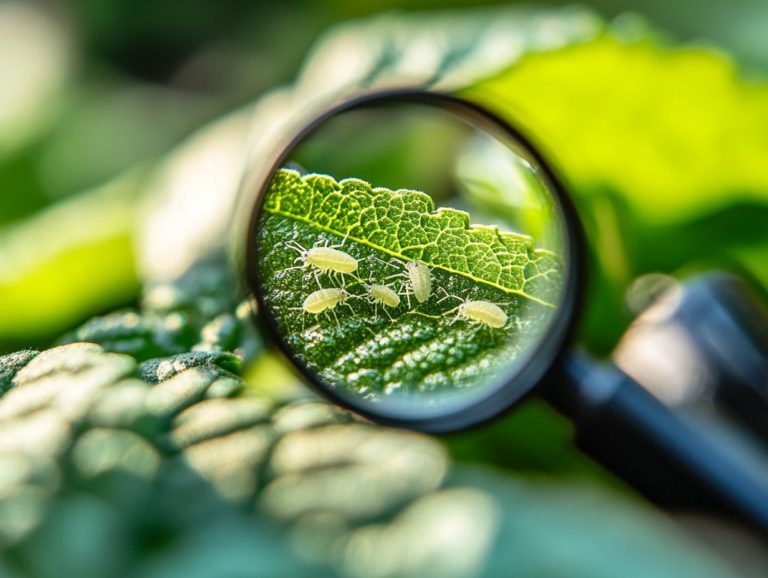5 Essential Attributes of Effective Pest Control
Pest control plays a vital role in ensuring your living or working environment remains healthy. However, many tend to underestimate its significance until problems arise.
This article highlights five essential attributes that characterize effective pest management, ranging from comprehensive inspections to the expertise of skilled pest control experts.
You will discover common pests, explore environmentally friendly control methods, and understand the risks tied to DIY approaches. You will also learn how regular pest control can save you money in the long run.
Take charge of your pest control strategy today!
Contents
- Key Takeaways:
- 1. Thorough Inspection and Identification of Pests
- 2. Use of Safe and Effective Pest Control Methods
- 3. Regular Monitoring and Follow-Up Services
- 4. Knowledge and Experience of Pest Control Technicians
- 5. Customized Treatment Plans for Different Types of Pests
- What Are the Most Common Pests and How Can They Be Controlled?
- Frequently Asked Questions
- What are the 5 essential attributes of effective pest control?
- How does prevention play a role in effective pest control?
- Why is identification important in pest control?
- What does elimination entail in effective pest control?
- How does monitoring play a role in effective pest control?
- Why is education necessary for effective pest control?
Key Takeaways:
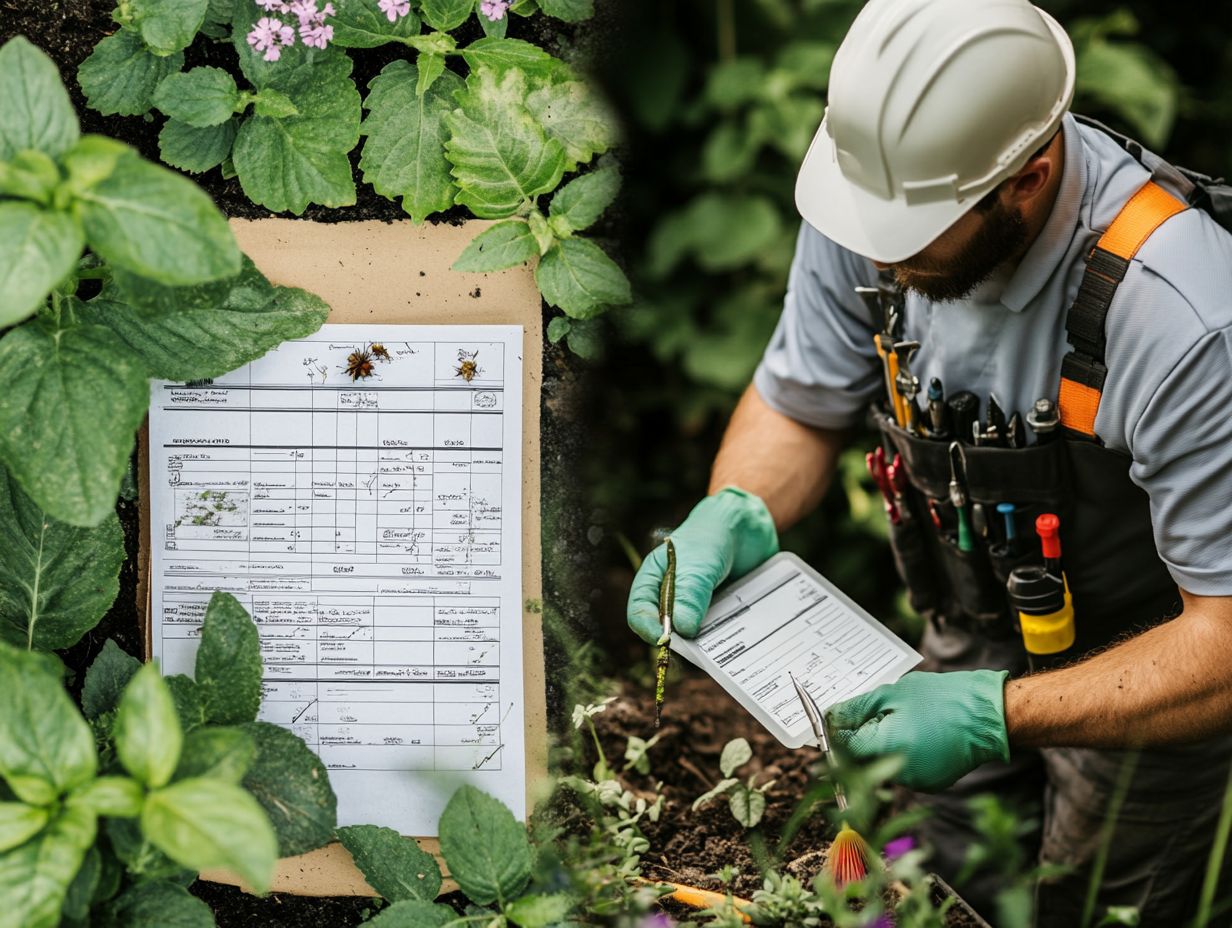
- Thorough inspection and identification of pests are crucial for effective pest control. This allows for targeted treatment plans and prevents future infestations.
- Using safe and effective pest control methods protects the environment and ensures the health and safety of humans and pets.
- Regular monitoring and follow-up services are necessary to ensure pest control treatments are effective and long-lasting.
1. Thorough Inspection and Identification of Pests
A thorough inspection and accurate identification of pests are crucial steps in effective pest control. This ensures that you can employ the appropriate pest management strategies, including simple ways to prevent pest infestations, to mitigate issues and protect food safety, especially in critical environments like food processing facilities in the Philippines, where health risks escalate due to pest activity.
Identifying common pests such as mosquitoes, cockroaches, and rodents is essential, as each one presents unique threats to health and business operations. Inspectors often use various methods like visual inspections, trapping, and monitoring to detect these pests effectively.
Addressing infestations promptly goes beyond maintaining sanitary conditions; it’s also about preventing significant economic losses from product contamination, facility shutdowns, or damage to infrastructure. By taking a proactive approach and implementing effective pest control measures, you can safeguard your reputation and ensure compliance with health regulations.
2. Use of Safe and Effective Pest Control Methods
The adoption of safe and effective pest control methods is crucial for any pest management program. By understanding pest behavior for effective control and combining chemical control with different pest control methods, you can minimize health risks while effectively tackling infestations.
This approach safeguards your immediate environment and fosters long-term sustainability. By employing a variety of methods, such as biological controls and targeted treatments, you can significantly lessen the environmental impact often linked to traditional pest control.
Incorporating environmentally friendly practices like natural repellents and habitat modification is essential to nurturing a balanced ecosystem. Additionally, considering organic pest management can enhance these efforts. Working with pest control experts allows you to develop tailored strategies that meet your specific needs, ensuring that both effectiveness and safety are prioritized without compromising the health of surrounding communities.
3. Regular Monitoring and Follow-Up Services
Regular monitoring and follow-up services are essential elements of a thorough pest management strategy. They empower pest control experts to track pest activity, identify new infestations, and evaluate the effectiveness of current measures.
The frequency of inspections is crucial for maintaining a pest-free environment, allowing for early detection and prompt action against potential threats. With advancements in technology, pest control specialists can leverage innovative tracking tools and automated alerts, leading to more efficient monitoring processes.
This proactive approach not only solves current issues but also helps prevent future ones. Follow-up services further strengthen these efforts, ensuring that pest control measures remain effective over time. This provides you with peace of mind while safeguarding your space from future pest infestations.
4. Knowledge and Experience of Pest Control Technicians
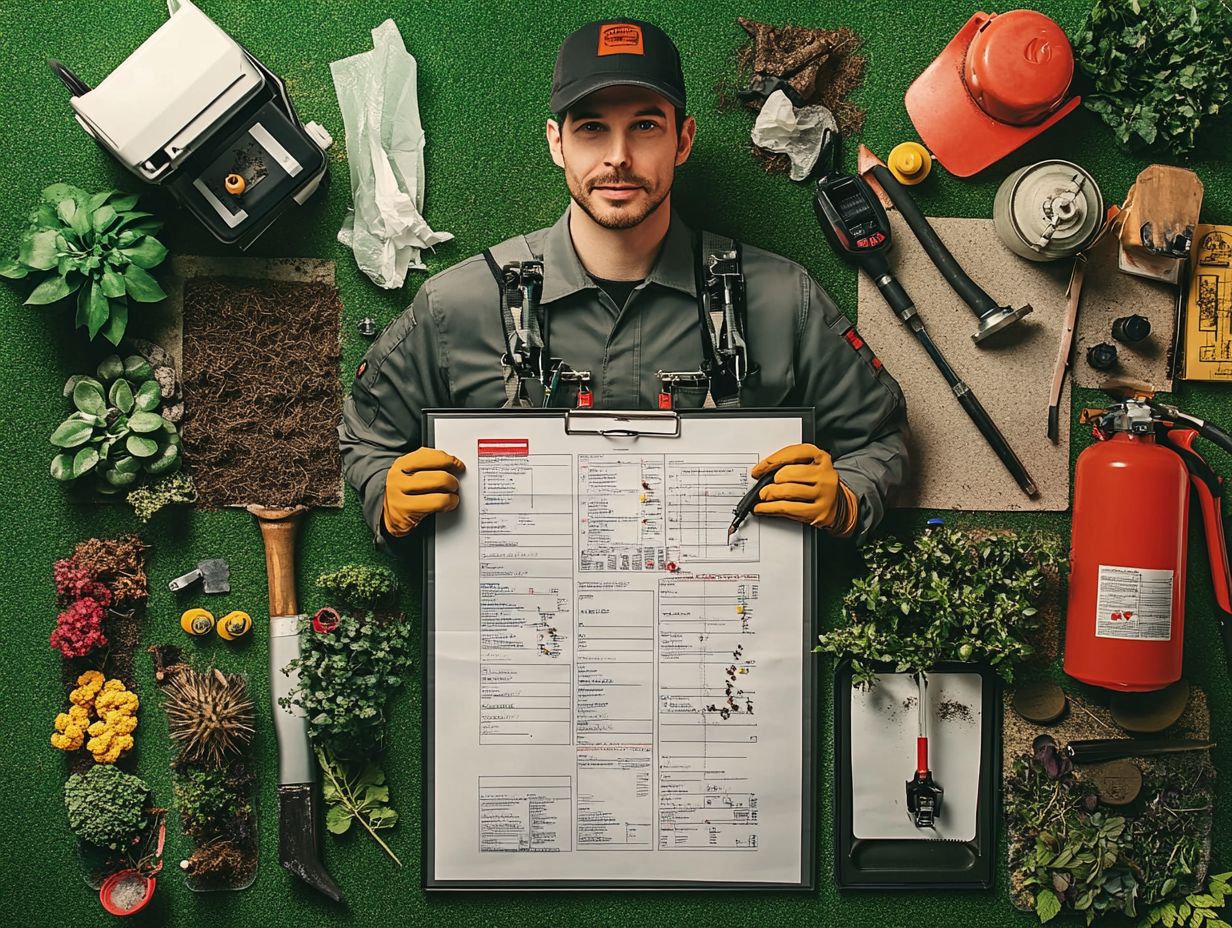
Trust the Experts! The knowledge and experience of pest control technicians are vital for effective pest management. Their expertise allows them to assess pest infestations accurately and determine the best solutions.
These professionals engage in rigorous training programs that cover pest biology, chemical safety, and environmental regulations. Most receive hands-on training to handle live infestations of common pests like termites, cockroaches, and rodents.
Through real-world experience, they learn to spot signs of infestations and develop customized strategies. For instance, if faced with a bed bug outbreak, their skills in inspection and treatment can speed up eradication efforts.
5. Customized Treatment Plans for Different Types of Pests
Effective pest management requires customized treatment plans. These plans cater to the unique needs of each pest, ensuring you receive efficient and safe pest control solutions.
When you identify the specific pest, professionals can craft focused strategies. For example, termites need a different approach than bed bugs, which invade your living spaces.
Customizing your approach improves effectiveness while minimizing risks of general pest control methods. The benefits include better outcomes and less pesticide use, enhancing satisfaction for homeowners.
What Are the Most Common Pests and How Can They Be Controlled?
Understanding common pests and how to control them is essential. Pests like mosquitoes, cockroaches, rodents, and termites can cause health risks and economic losses if not addressed quickly.
These pests thrive in environments offering easy access to food, moisture, and shelter. Regular inspections and preventive measures are crucial. For example, mosquitoes breed in stagnant water, while cockroaches hide in kitchens and bathrooms.
Identifying these intruders early lets you act fast! You can use methods like traps and baits or hire professional extermination services tailored to your needs. Sealing entry points and maintaining cleanliness can drastically reduce the chances of new infestations.
How Can Pest Control Be Environmentally Friendly?
Pest control can benefit the environment! Implement integrated pest management strategies that prioritize sustainable solutions while minimizing health risks from chemicals.
By using non-chemical control techniques like beneficial insects and traps you can manage pest populations naturally. Modifying habitats, such as removing standing water and sealing entry points, effectively deters pests.
Educating your community about proactive pest prevention techniques empowers you and your neighbors. This approach reduces reliance on harmful chemicals, safeguarding the ecosystem and creating a safer living space for everyone!
What Are the Risks of DIY Pest Control?
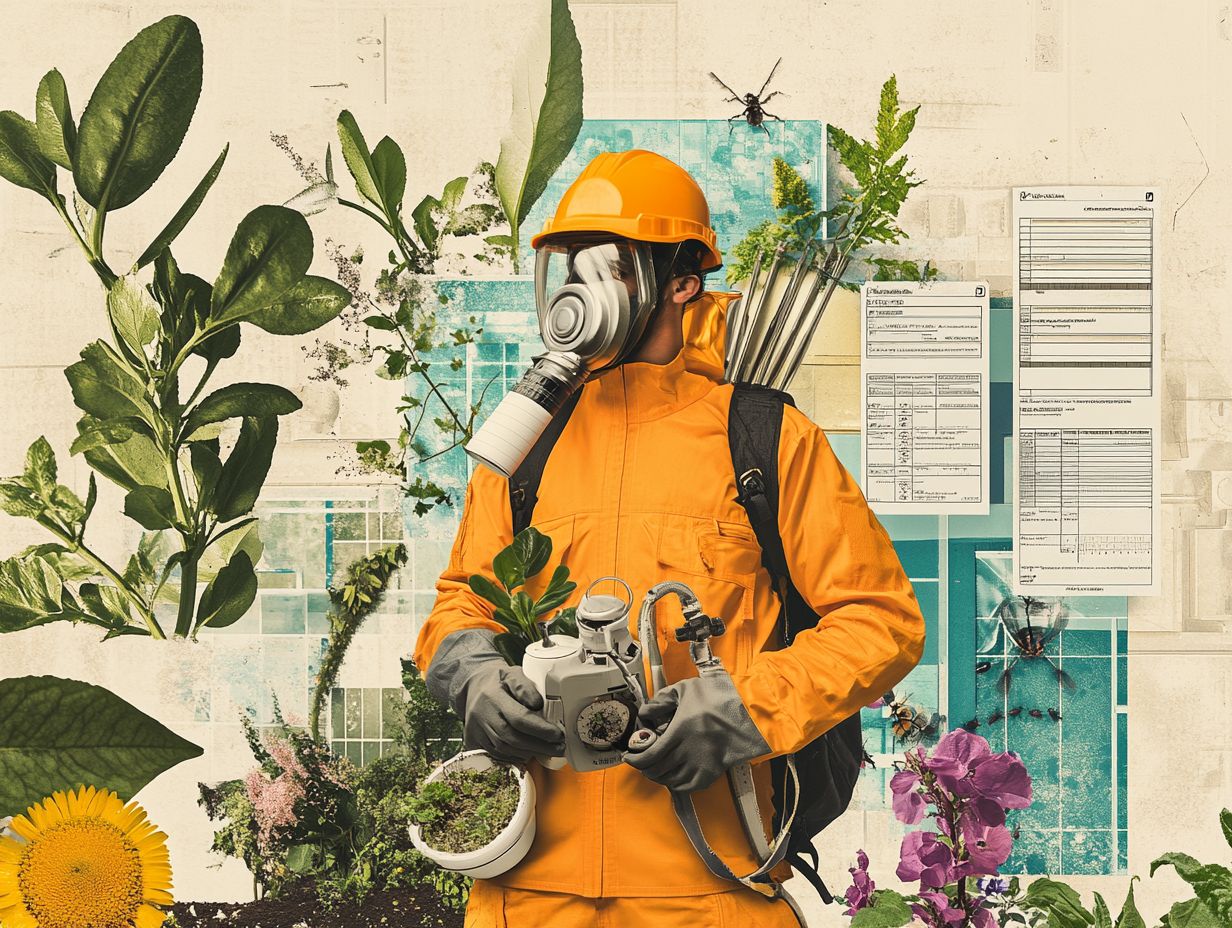
While DIY pest control might seem like a budget-friendly option, it carries serious health risks and can worsen your pest problem.
Many homeowners often underestimate how pests act and the specific conditions that can lead to more infestations. Misidentifying pests can result in using the wrong treatments, which allows the issue to persist.
Mishandling chemicals can pose serious health threats to both your family and pets. Enlisting professional pest control services ensures you receive effective extermination strategies tailored to your situation.
This approach fosters a safer living environment through expert management of hazardous materials and helps maintain long-term pest control, keeping pests away for a long time.
How Can a Business or Homeowner Prepare for Pest Control Services?
Preparing for pest control services is vital, whether you’re a business owner or a homeowner. It involves taking essential steps, such as thorough sanitation and proper pest identification, to ensure effective implementation of the pest management tools in gardens program.
By being proactive and engaging in open communication with pest control experts, you can enhance the treatment’s effectiveness. This includes:
- Clearing out clutter to give technicians easy access to problematic areas,
- Securing food items in sealed containers,
- Sharing specific pest sightings you ve observed around your property.
Don’t hesitate to share your unique concerns and previous pest challenges doing so can significantly improve pest management. Collaborating with professionals creates a cleaner, healthier environment for everyone involved.
What Are the Long-Term Effects of Neglecting Pest Control?
Neglecting pest control can lead to serious long-term consequences, such as persistent infestations, heightened health risks, and significant economic losses from property damage and compromised food safety, especially in places where pest problems are common.
These issues don t just affect individual homeowners; they extend to businesses that need to provide safe environments for customers and employees. Imagine a restaurant ignoring a rodent issue it risks health violations and a damaged reputation, driving customers away.
In agriculture, failing to implement effective pest management can result in decreased crop yields and financial strain, showcasing the far-reaching impact of poor pest control practices. A proactive approach to pest management is essential for safeguarding well-being and ensuring business viability, especially against threats like mosquitoes and cockroaches.
How Can Regular Pest Control Services Save Money in the Long Run?
Investing in regular pest control services can be a smart financial move, saving you money by preventing costly infestations that could cause significant economic losses and property damage.
A proactive approach to pest management can greatly reduce the likelihood of needing expensive emergency treatments. For example, a single termite infestation can lead to repair costs in the thousands if left unchecked. In contrast, preventative services, like quarterly inspections and treatments, typically cost a fraction of that potential loss, aiming to catch issues early.
This strategic investment protects you against immediate threats and contributes to long-term peace of mind with successful integrated pest management, which is a comprehensive approach to controlling pests. Regular pest control services are not just a necessity; they re a wise financial choice that pays off over time.
For more effective pest management and to ensure your home or business is safe, consider reaching out to professional pest control services today!
Frequently Asked Questions
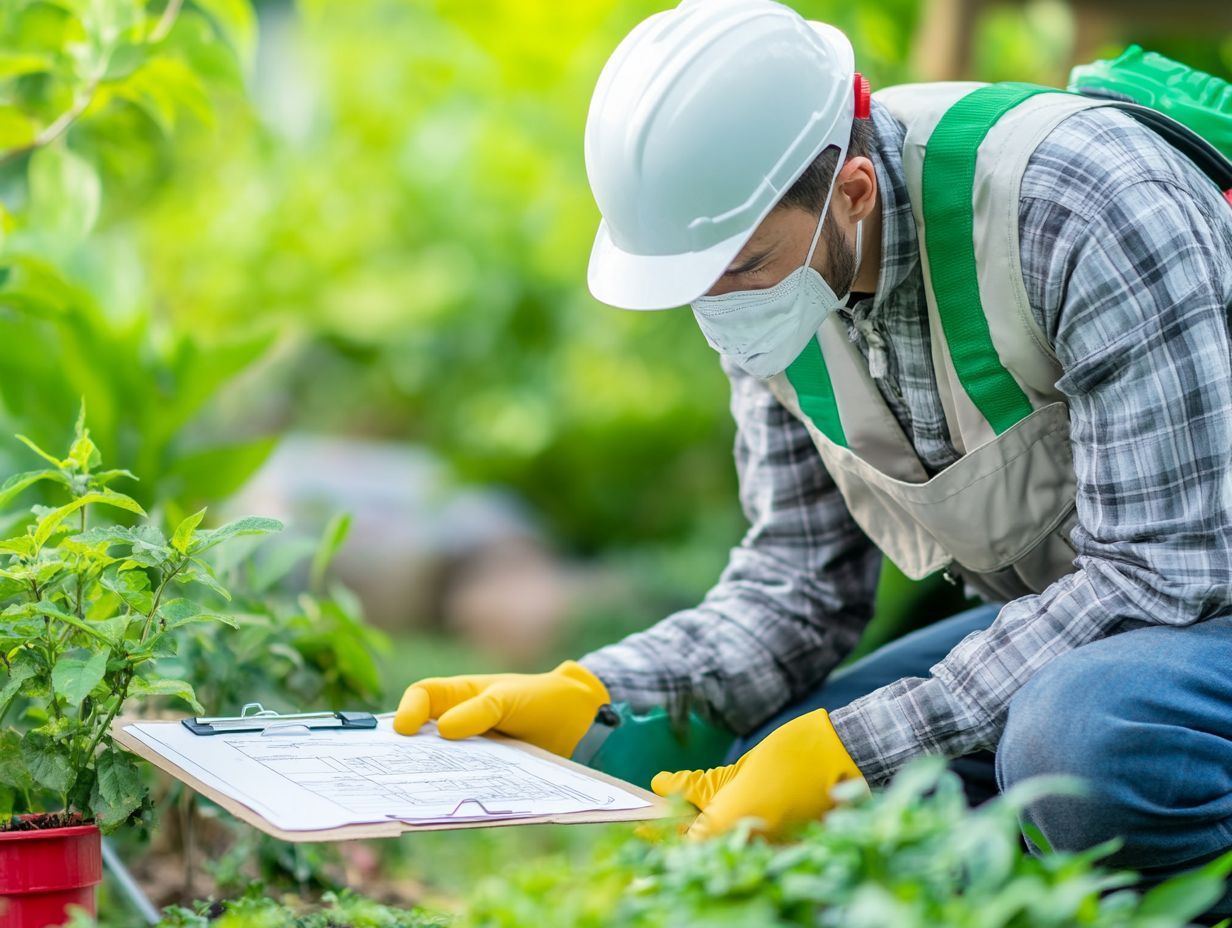
What are the 5 essential attributes of effective pest control?
The 5 essential attributes of effective pest control are prevention, identification, elimination, monitoring, and education. Implementing tips for a successful pest monitoring plan emphasizes the need for chemical control when necessary.
How does prevention play a role in effective pest control?
Prevention involves taking proactive measures to keep pests from entering and infesting a space. This can include sealing entry points and keeping a clean, clutter-free environment.
Implementing materials that keep pests away can also help minimize pest infestation.
Why is identification important in pest control?
Identifying the type of pest present is crucial for developing an effective treatment plan. Different pests, such as bed bugs, termites, and rodents, require different elimination methods.
Knowing the specific pest species is essential for successful pest control.
What does elimination entail in effective pest control?
Elimination involves using appropriate methods to get rid of a pest infestation. This can include using traps, pesticides, or natural remedies.
The choice depends on the severity of the infestation and the type of pest present.
How does monitoring play a role in effective pest control?
Regular pest monitoring allows for early detection of new or recurring pest infestations. This facilitates quicker and more targeted treatment.
Prompt action prevents infestations from getting out of control.
Why is education necessary for effective pest control?
Understanding pest control is key to keeping your space pest-free! Education helps prevent future pest infestations.
By learning proper sanitation and maintenance practices, you can take proactive steps to keep pests out.
Don t wait until pests invade your space; learn how to protect it today!



